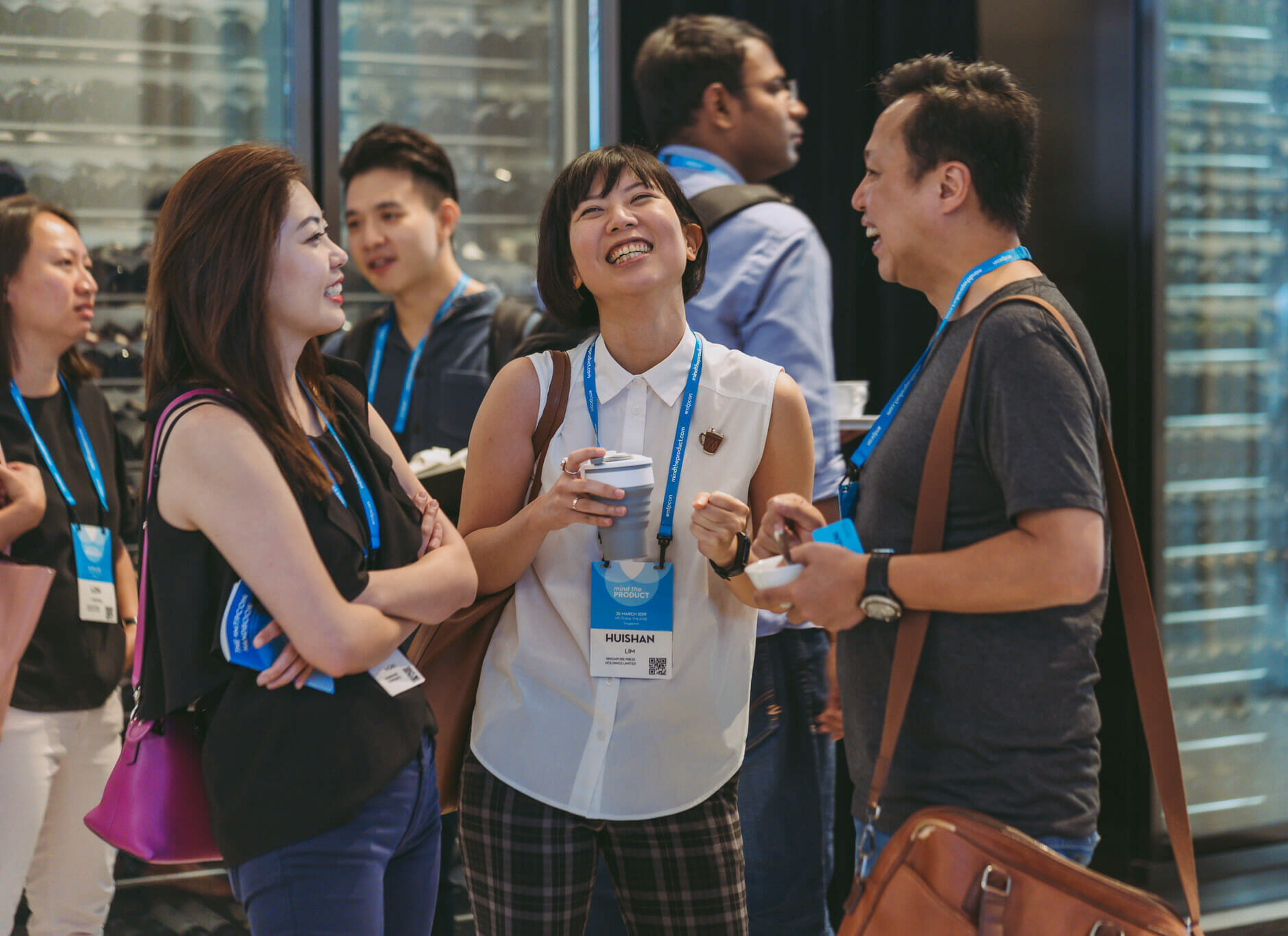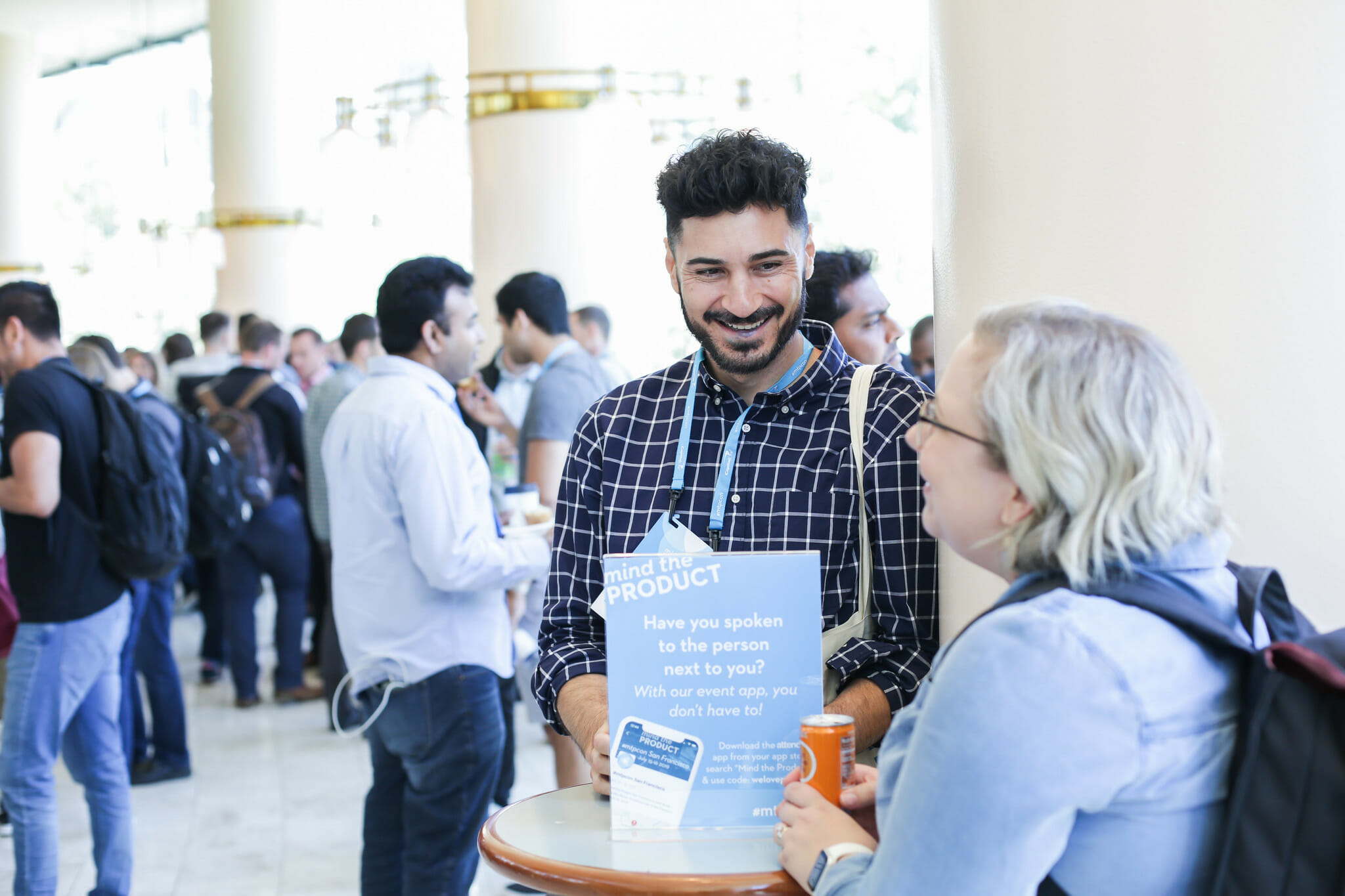The Importance of Connection and Community [Mind the Product]

No man is an island. Now, more than ever, the entire world is understanding the importance of human connection and people are actively connecting with the people they know (and the people they want to know) in new and innovative ways.
We’ve been watching it happen before our eyes throughout Mind the Product APAC this week. New connections were made every day. People from opposite ends of the earth chatted online like they were sitting in adjacent rooms. As people, we don’t want that to stop. As product people, we know it doesn’t have to.
Our actions, our ideas, and our work have the ability to affect the world around us in profound ways. There is no community where this is more true than the product community.
The most important question we all need to ask ourselves today, and to keep asking going forward is: “What kind of community do I want to be a part of?” Once you’ve created a vision of what calls to you, then you need to clarify by asking “Why do I want to be a part of it?”. What will you get out of giving of your attention and time to that community, and how much do you want to give?
Communities, like Mind the Product, that allow for the free flow of ideas have enabled us to build up a global understanding of what works and what doesn’t. Let’s explore.
The Beauty of Community
Communities can be governed and shaped in different ways. They can be virtual, ad hoc, based on consistent schedules, driven by one individual or whole committees. There are absolutely no rules, so as you look to create a connection in your life, and find the right community for you, it’s always best to go back to that golden question in product management, “What problem are we trying to solve?”.
I’ve personally seen so many incredible communities built around very different ideas.
Mind The Product’s community, exclusively for product people, has grown hugely over the last 10 years. The team behind the scenes believes wholeheartedly in the strength of a diverse community, in giving lots of different voices a chance to be heard, and in enabling the sharing of ideas so that we can further the craft of product management together.

The ResearchOps community, founded by Kate Towsey, among others, is built around the idea of deeply understanding a specific process and discussing how it can create value.
The Design for Good community allows people to connect around opportunities for tech to create social good. I’ve just formed a new members community for freelance product leaders called the Product Cooperative. My intention is that this is a small, closed community to create a sense of safe space where people can ask hard-hitting, real questions about how to build a freelance practice.
Another incredible platform is lunchclub.ai. You enter who you’re looking to meet and the platform pairs you with someone for a (now virtual) lunch. I’ve met tech lawyers, entrepreneurs, and scientists and its concept is built around network effect. I discovered it when I was invited by Product Leader, Andy Ayim. I trust Andy, so I joined!
Does Size Matter?
F. Scott Fitzgerald once said, “I love big parties, they are so intimate”.
Productive, engaging, and valuable communities come in all shapes and sizes. Members can interact and get value in a whole bunch of ways and just because a community is made up of a few thousand people, or even a few hundred thousand, doesn’t mean that you can’t create deep connections with other people within them.

Sometimes it’s easier to make connections in bigger communities because there’s more diversity and greater nuance to the membership. You can find pockets of conversation. You’re also exposed to a wider diversity of thought and ideas.
Occasionally though, depending on how a large community is facilitated, you might not be able to have the depth of discussion or substantial idea exchanges that a small group of people sitting around a table can have. Do you feel you are looking more for variety or depth? The answer to that will point you to large or small communities.
Virtual or In-Person
Right now, there’s no choice, all communities are currently virtual. I hypothesize that once this is all over, the value of in-person, face-to-face interactions will be felt in a whole new way. Virtual communities are wonderful because they level space and time. You can speak to anyone about anything. You can connect to individuals on the other side of the world about how they do things differently or the same.
But virtual communities often tend to be light touch, and it’s difficult to sustain attention spans. And they can be difficult spaces to facilitate and maintain the quality of content and the safety of participants. You need dedicated moderation to maintain standards – who will hold members to a code of conduct? These things hold true for in-person communities as well. In-person communities obviously enable a deeper level of connection. You have to sense the energy and the interest of the community in a completely different way.

Join vs Build
Sometimes in order to understand what type of community you want to be a part of, you have to start by engaging in one to see how it feels. Does it address the questions you have? Is it welcoming? Do you see yourself in others within it? Conversely, is it stretching you?
Don’t be afraid to visit a bunch of communities or meetups- visit as many as you can find in fact – because this will help you to answer the question as to whether a new one is needed.
I still remember going to my first ProductTank in London after I first moved here and didn’t know anyone – I felt I’d found what I needed at that time. I also remember the impact of hearing Kathy Sierra at Mind the Product in 2014. The ideas from her incredible talk Building Badass Users – “you’re customers don’t want to be amazing at your product they want to be great at the context“ – remain burned into my brain to this day!
If you explore some communities and still feel there’s an opportunity to create a new space, your next step is to find others who feel the same (if you can’t find anyone, perhaps take that as a message that your idea might be too niche).
Mind the Product began when the need for it was realised. It started with a simple meetup to test the waters and from that very first ProductTank, the number kept climbing. There are now 187 ProductTanks around the world plus five conferences. This came about as a result of one thing – that people wanted to connect and share ideas.
ProductTank now provides a platform for amazing ideas and processes in every corner of the planet, all of which deserve the attention of the world. So, to provide an appropriate resource for this, we have amassed a library of talks and blogs in mindtheproduct.com where you can access 10 years of amazing ideas. And we know you all have more to share, our blog is always open to new submissions!
Start Today
As Mind the Product APAC comes to an end we hope it’s just the beginning of many more conversations and connections to come. And, if you don’t think you’ve found your community already, just know you’re always more than welcome in ours.
Keep talking to each other, keep sharing ideas and if submitting a blog or joining a meetup (virtual or otherwise) feel too difficult right now, or even if you’re simply unsure how to make the first move, why not start small?
Join our Slack channel where you’ll find 20,000+ product managers actively engaged every day. Watch the conversations in action and join in when you’re ready. Say hi to a fellow product person on Twitter, connect with someone on LinkedIn, or comment on a post. You’ll be amazed how quickly a support network can form.
The post The Importance of Connection and Community appeared first on Mind the Product.
Source: Mind the Product https://www.mindtheproduct.com/the-importance-of-connection-and-community/


Post a Comment